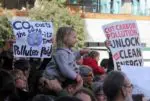
*Update: On March 15, 2025, the Canadian Federal Government announced changes to the consumer carbon tax. Effective April 1, 2025, the carbon tax will be set to $0. This means that after March 31, 2025, the carbon tax will no longer be applied to natural gas usage.
Customers will still see carbon tax charges for usage incurred up to and including March 31, 2025. For usage periods after March 31, 2025, the line-item Carbon Tax will read $0.00. Eligible Canadians will receive a final Canada Carbon Rebate payment starting April 22, 2025.
To learn more about the change to Canada’s carbon tax, click here for our detailed guide.
It came into effect on January 1, and it has brought with it a landslide of reactions, but what is it that makes the new Alberta carbon tax so controversial?
Although it is, essentially, a small increase, the carbon tax is going to have a big impact on the broad scope of Alberta’s economy. Everyone will be impacted, but because the tax is applied at different levels to different fuels based on the amount of carbon that is produced in combustion, as well as the fact that not everyone stands to benefit evenly from the carbon rebates, the varying responses to those impacts are stirring up the controversy.
What is the carbon levy?
In simple terms, it’s a financial incentive to lower our carbon footprint. The levy is charged to transportation and heating fuels (diesel, gasoline, natural gas, and propane) based on the amount of carbon they release into the air when they are combusted. For 2017, the carbon levy will amount to $20 per tonne before increasing to $30 per tonne in 2018. Marked gasoline and farm fuels are exempt from the levy.
Who benefits from the carbon levy?
The environment is the biggest beneficiary. The carbon levy was chosen as the most cost-effective means of encouraging individuals to lower their consumption and find alternatives to using fuels that introduce harmful pollutants into the environment, contributing to global climate change. Of course, planet Earth (and everyone who depends upon it) isn’t the only one to benefit. The carbon levy also provides a means for wealth transfer: a means of charging higher-worth individuals more for taxes in order to give a little more back to lower and middle-income families.
The carbon levy came into play alongside the Climate Leadership Adjustment Rebate, an income-test program to offset the increase in carbon costs for lower and middle-income Albertans. Based on income rather than energy consumption, 60 percent of Albertans will automatically receive a full rebate (as long as they’ve filed their 2015 taxes). An additional six percent will receive a partial rebate, and even small businesses will receive a one-third tax rate reduction to assist with increases caused by the carbon levy.
But therein lies the controversy
Many of those who aren’t eligible for the rebate are suggesting that the NDP is merely using the levy to pad the vote by appealing to the majority of their potential supporters. Others are simply concerned about the overall impact on Alberta’s economy. Heating and fuel costs may not be expected to experience a notable difference, and there are simple means of addressing those costs, both at home and in the workplace: turning the heat down a couple of degrees, installing timers and motion sensors to ensure lights are turned off when no one is in the room, unplugging electronics that aren’t in use, etc. However, a significant portion of Alberta’s economy—and its livelihood—depends on transportation, and transportation fuel costs are among the highest impacted.
From the cost of the pumps to the cost of groceries that have to be shipped, the impacts on the varying degrees of Alberta’s economy that depend on transportation could be high. Many of Alberta’s businesses (who are already frustrated by the fact that charges are applied to their operations while only individuals are reimbursed personally) see a rise in fuel taxes to be the nail in the coffin lid in the wake of an economy that is already forcing many to close their doors. Businesses aren’t the only ones feeling this crunch: non-for-profits are equally concerned about what a carbon tax will mean for their ability to continue to serve the public, and municipal governments (who maintain bus fleets as well as community service buildings) are disappointed in the rarity of one level of government taxing another—and the financial uncertainty that creates could mean increases in municipal taxes.
In other words, the carbon levy introduces wide-reaching trickle-down effects that are still, for the most part, shrouded in uncertainty, and that uncertainty can only be embodied by the controversy that is being stirred up by the anxiety and frustration of the people it affects.











